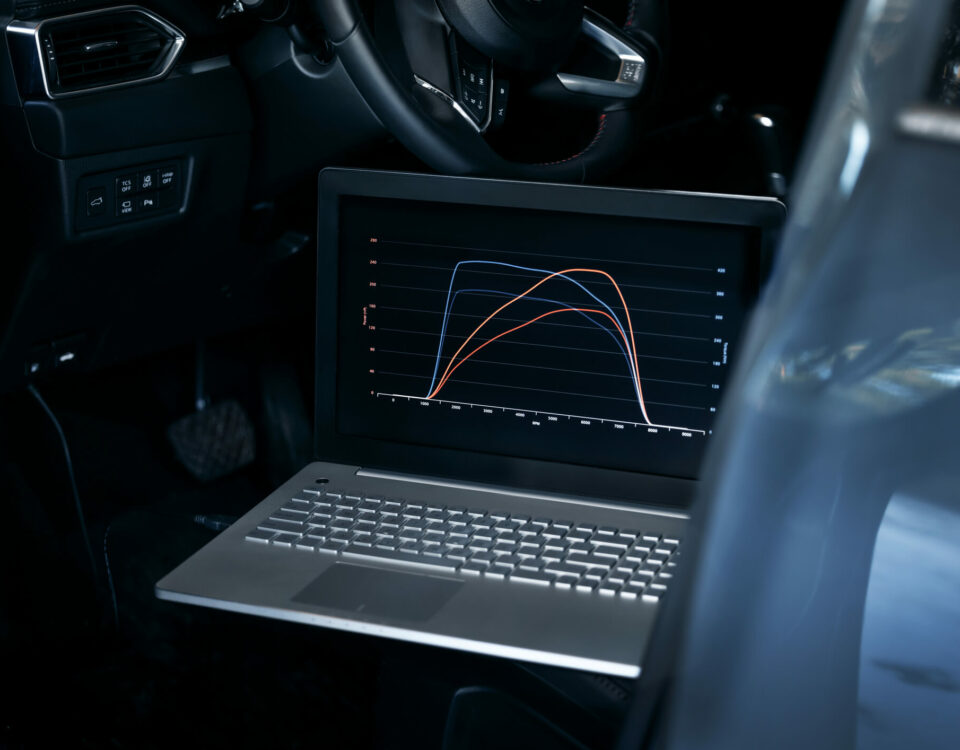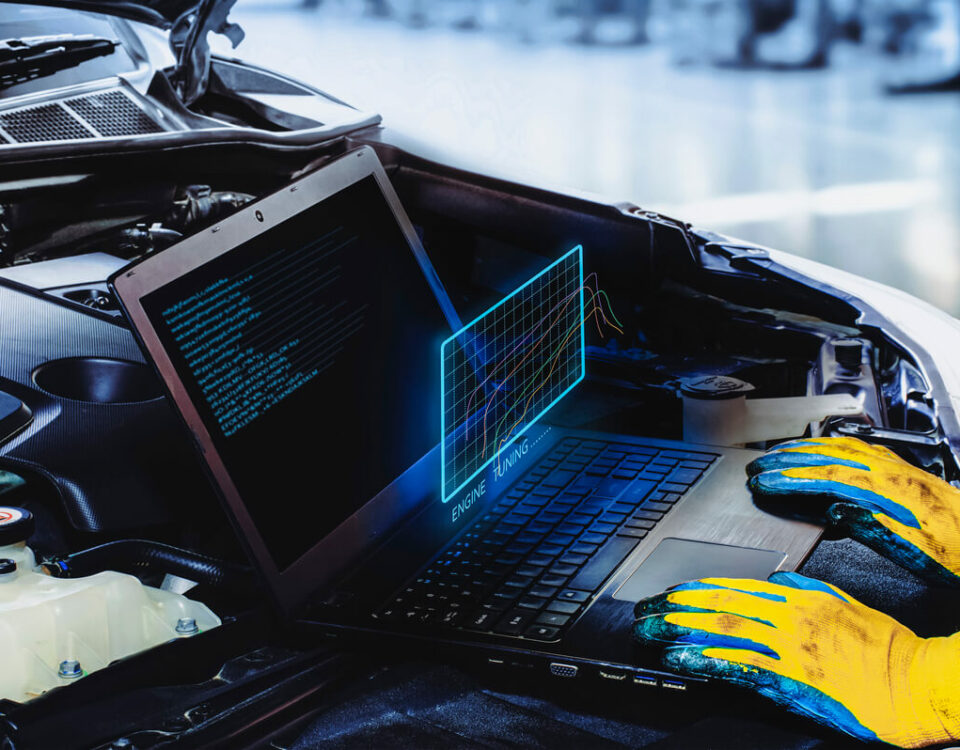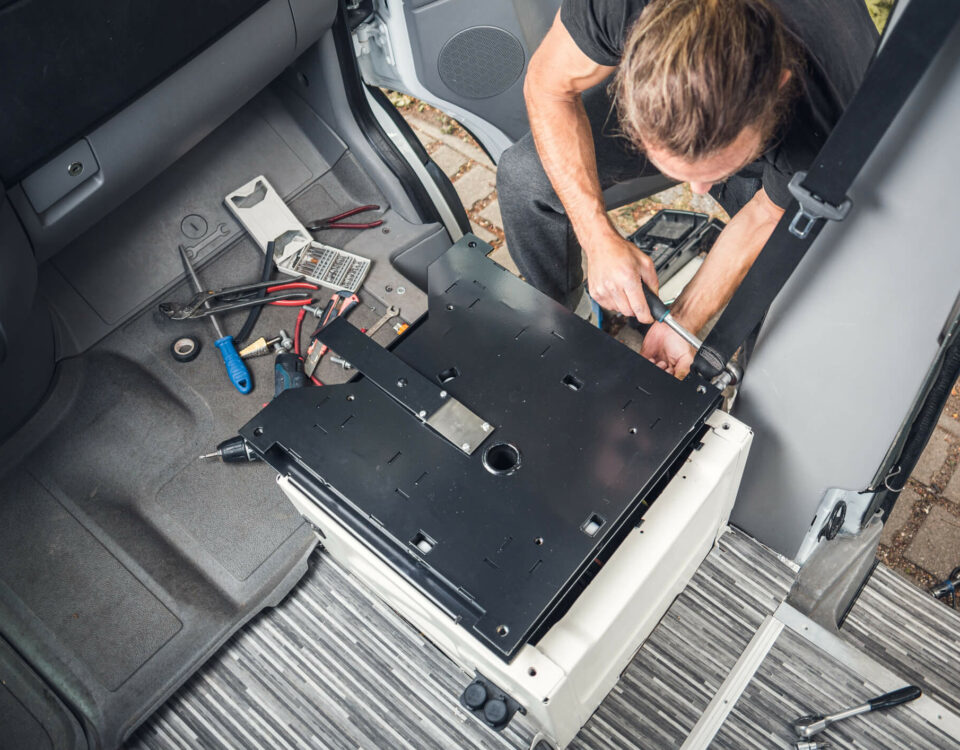What is a Stage 2 Remap?
ECU Remapping (or just “remapping” for short) is the process of altering a vehicle’s onboard Engine Control Unit – ECU – to improve performance. Because the ECU is responsible for monitoring and regulating the performance of the engine, ECU Remapping makes it possible to drastically improve your vehicle’s performance without the need for expensive hardware.
The Engine Control Unit is able to monitor and fine-tune your engine’s performance by receiving information from sensors throughout your engine system and fine-tuning the engine components to deliver reliable performance. With a few software tweaks, your ECU can be remapped to increase performance, fuel economy or a combination of both based on the owner’s preference and skill of the engineer performing the ECU Remap.
Depending on what kind of performance increase you want to see and the make and model of your car, you may need to get a more intensive stage of remapping. Most garages offer ECU remaps in 3 different levels of complexity, though the best remap company in your area may also offer a bespoke solution for your needs.
Stages of Remap:
There are 3 main stages (or levels) of ECU remapping which differ in their complexity and time requirements, and they are:
Stage 1 Remap:
Stage one remaps, also known as ‘reprogramming’, are the most basic level of ECU remaps and can be carried out on stock cars with stock hardware and may involve air filters or a box delete etc. Stage 1 remaps are technically simple and only require software recalibration, making them a quick and effective way to improve the performance of a standard car without the need for hardware upgrades.
Stage 2 remap:
As you might expect, stage 2 remaps are more complicated than stage 1 remaps and require intake/induction + exhaust, which may require an intercooler. By tweaking your ECU unit and adding minor upgrades like turbos or larger intercoolers, you can significantly improve the performances of your car with far greater results than hardware upgrades or an ECU remap alone.
Stage 3 remap:
Stage 3 remaps are the most technically complex ECU remaps (excluding bespoke packages) and can be carried out on cars with hybrid turbo, high-pressure fuel pumps, low-pressure fuel pumps etc. These remapping packages will take any existing upgrades, or previous remaps into account to tune your vehicle to perfectly suit your driving style and desired performance, turning virtually any car into a finely tuned racing machine.
Custom Tuning:
Custom Tuning can be used in either Stage 1,2,3 as a custom tune is a further refined version of a remap calibrated precisely for the car. You can choose to have a custom tune for any stage of ECU remap, though a custom-tuned stage 1 remap may not be worth the trouble, as you won’t reap all the benefits without additional hardware.
What Does a Stage 2 Remap Involve?
Stage 2 remaps are more effective at improving performance than stage 1 remaps, thanks to their use of hardware – as well as software – improvements. Although the details of stage 2 ECU remaps can vary between different makes and models of vehicles, there are some general requirements for stage 2 remaps, including:
Performance Intercoolers:
Intercoolers are radiator-like devices which cool the air that enters your vehicle’s engine in order to increase engine power. These devices use a basic scientific principle – cold air is denser, containing more oxygen per cubic centimeter which makes more powerful combustions – to improve engine performance and allow an ECU remap to ‘overclock’ your engine without generating excess heat.
Aftermarket Exhaust System:
Aftermarket exhaust systems come in a wide variety of shapes, sizes, and purposes, though they are all designed to improve the flow of exhaust out of the engine (with or without enhancing the noise levels). Because an engine can only produce power if it can vent exhaust gases, improving your exhaust system will allow your car to improve exhaust flow and keep up with the increased combustion rates that ECU remaps allow.
Can You Go Straight to Stage 2 Remaps?
Don’t be fooled by the numerical naming system – the ‘levels’ of remaps aren’t a required order and just refer to the extent of work they entail – so you could go right to stage 3 if you fancy. While many car owners start with a stage 1 remap before progressing to stage 2, this isn’t necessary, and you can theoretically take your car for whichever stage of ECU remapping you want – when trying to find the best remap company in your area, try asking garages if they can do a stage 2 or 3 remap on a stock car.
What is the Difference Between Stage 1 and Stage 2 Remaps?
Stage 1 Remap:
Modifications:
During a stage 1 remap, a technician will connect a computer to the onboard computer of your vehicle and tweak the settings of your Engine Control Unit using special software. Although the specific tweaks may vary between cars and desired results, one thing remains the same across all Stage 1 Remaps: The process will only change your ECU – no hardware changes are required.
Note: When undertaking any kind of remapping – whether it is stage 1, 2, or 3 – you must get permission from your insurer, as they may raise your premiums or cancel your insurance.
Stage 2 remap:
Modifications:
Much like stage 1 remaps, stage 2 remaps involve tweaking the software of your ECU, though they also add physical tweaks like new engine parts or add-ons. While hardware requirements can vary greatly, common additions include aftermarket exhaust systems and performance intercooler systems.
Importance:
Stage 2 remap is one of the most favourable modifications for a vehicle. It is because it lies in the mid of Stage 1 and 3; it means that you will not regret getting small lower gains after getting stage 1 remap and will not worry if you do not want to take a risk of stage 3 to remap. Stage 2 offers a balance of modifications necessary for the vehicle. But always take the guidance from the best remap company in this regard, as they will help you make the best decision.
What do you need for a Stage 2 Remap?
Because stage 2 remaps are significantly more complicated than stage 1 remaps, you should find the best remap company in your area before trusting your car to them. These remaps entail tweaks to your ECU software as well as physical upgrades, the most common of which are:
Aftermarket exhaust system:
Aftermarket exhaust systems are essential for improving engine performance in stage 2 remaps, as they improve the through-flow of your engine system, allowing for more revolutions and power.
Performance Intercoolers:
Intercoolers decrease the temperature of air entering your engine to increase oxygen levels and engine power, allowing your ECU to ‘overclock’ your engine for major power increases.
How Much Does a Stage 2 Remap Cost?
While the cost of ECU remaps can vary greatly depending on your vehicle, the garage you use and the level of work being carried out, good stage 2 remaps usually cost between £200 – £400. If this seems expensive, remember that you are entrusting the intricate inner workings of your car to a stranger, and try to find the best remap company within your budget.



